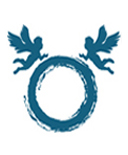Reply to comment |
Muslim family integral to Gaza Church
Qarmash devotes life for Christian-Muslim solidarity
"They rejected me without any prior information, while my father always taught me the Christians and Muslims are brothers sharing the same blood, the same God and the same land,” he ponders.
Only after people noticed his presence in the next door mosque, Kateb al-Welaya, they developed interest in Qarmash. Soon some began to treat him as an expert on Christianity. “I was inquired about customs and traditions, the shape of the Church from within and Christian holidays,” he tells this correspondent. Clearly he found solace and satisfaction in such distinction.
For someone brought up in two religions, practiced side by side, confusion in belief is difficult to rule out.
Qarmash disagrees. “I did not feel any duplication in the religious teachings as I learnt and practiced teachings of Islam and confidently dealt with followers of the church in the light of my own religion.”
Married with two sons and daughters each, he is least worried about his children to confuse between Islam and Christianity. Qarmash is following the practice of his father. “When they are two-year old, I recite the holy Quran for them and accompany to the mosque for prayers,” he explains fondly.
Guarding the church has been no easy task. During the 2008 attacks on Gaza, he recalls, the church was distributing aid to needy Christians and Muslims amid severe food shortages. “The supply chain was not enough to satisfy everyone so the more desperate ones attacked the monastery, almost hurt the monk, but I stood like a rock to save the grace of the church against hungry, angry people,” the guard shares one of his heroics.
Like a true blue policeman, he caught a thief in 2001 who tried to break in residence of the monks.
Besides his role of guardian, Qarmash also acts as interpreter on occasions.
"Khoury is a Greek origin official here and speaks no Arabic at all. I have to guide him in routine life as well as a crisis,” he says.
Qarmash still faces religious intolerance from Muslims and Christians both. Some Muslims believe that his presence in this place affects the religion as he mixes the teachings of Christianity with Islam. A delegation of Muslims visiting the church sternly advised him to leave the church.
"If we were you, we won't stay here for a minute,” Qarmash recalls one middle-aged cleric advising him so.
Some Christians find him an intruder in their place of worship as well as religion. He narrates an incident with his son Rahman. “Daddy . . . I want to become a Christian,” Qarmash son reportedly expressed to him. "Sometimes during celebrations at the church, juices and candies are distributed amongst children. But I don’t get them as they say juices and sweets are only for Christian kids,” he quotes Rahman as saying.
The idea of moving out of the childhood home gives him nightmares. “I would rather renovate this home instead of quitting it,” he says in a determined voice.
His wife Umm-e-Abdul Rahman interrupts him: "I am used to of this house and neighbors. I do not care at all what people say about our life inside the church.” Qarmash’s face shined with happiness as he words of appreciation from his life partner.
His four children and wife don’t miss a single Addan, Muslim call to prayer, as Kateb al-Welaya Mosque stands next doors. The Caliph in Islam, Umar Ibn al-Khattab built the mosque after re-constructing the church that was destroyed by the Persians. He sees the two important places of worship next to each other as true embodiments of co-existence.
Between the mosque and the church resides Kamal Ayad, director of public relations for religious council. Ayad, being an old friend of the family Qarmash, recalls, “After the Sunday prayer, my father and I used to sit in the Qarmah’s backyard, take coffee, and share jokes and experiences.”
Ayad recalls the ideal relationship between Christians and Muslims from the times of Caliph Umar Ibn al-Khattab who was received by Patriarch Sophronius in Zaitoun Mountain in Jerusalem. His historic speech about tolerance in Islam is still called the Covenant of Omar.
Christians, a minority not exceeding 4,000, have suffered just as the Muslims have at the hands of the Persians and the Crusaders, who not only killed Muslims, but also slaughtered nearly 5,000 Orthodox church-goers too.
Qarmash, sounds determined for a better, collective future.
“While being a Muslim, my service to the church has made me to be more receptive towards difference of beliefs or opinion,” says the conscientious Palestinian.








 Alaa Abu Aisha is journalist with special knack for human stories of war victims in the occupied territories as well as of those buried under the line of poverty. She contributes to various online and print news sources from Gaza.
Alaa Abu Aisha is journalist with special knack for human stories of war victims in the occupied territories as well as of those buried under the line of poverty. She contributes to various online and print news sources from Gaza. 